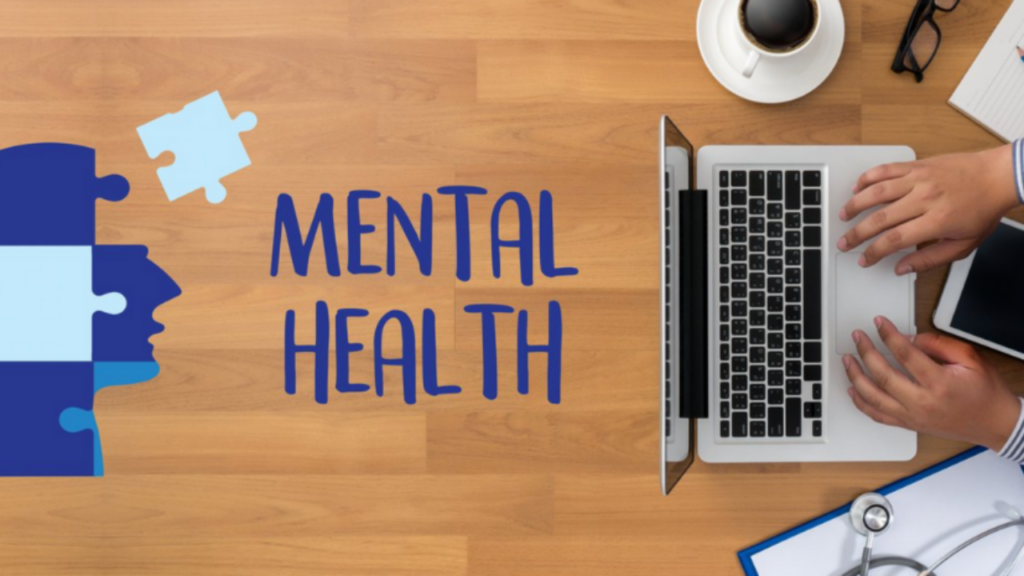This is a Guest Blog by Sandeepa Kaur, Licensed Clinical Psychologist
In a rapidly evolving digital landscape, the potential for technology to transform various aspects of our lives is undeniable. One of the most promising areas where technology can have a profound impact is in the realm of mental healthcare.

The growing awareness of mental health issues and the need for accessible and effective solutions have driven innovation in this field. From mobile apps and teletherapy to wearables and AI-driven diagnostics, technology is playing an increasingly significant role in mental healthcare. In this article we will explore the potential of technology in addressing the mental health crisis, making it more accessible, efficient, and effective.

Sandeepa Kaur, Licensed Clinical Psychologist
Access to care:
Access remains a key challenge in mental healthcare due to stigma, costs, and a shortage of professionals. Technology is addressing this issue, notably through teletherapy. Virtual counseling enables remote and convenient therapy via video, chat, or text, expanding access for individuals in remote locations or with physical limitations
Self-Help and Early Intervention:
Mobile apps and digital platforms offer a plethora of self-help resources, such as mood tracking and cognitive-behavioral therapy (CBT) programs. Apps like Headspace and Calm provide guided meditation and relaxation exercises for stress and anxiety management, while Moodfit helps users monitor moods and gain emotional insights, fostering self-awareness and early intervention.
AI and Machine Learning:
The incorporation of AI and machine learning in mental healthcare is transformative. AI can analyze speech patterns to detect depression or anxiety and predict suicidal tendencies from social media posts, enabling early interventions. Machine learning aids in personalized treatment recommendations by assessing patient history and therapy responses, enhancing treatment success rates.
Wearable Devices and Mental Health Tracking:
Wearable technology is not just for counting steps; it’s becoming a valuable tool in mental healthcare. Wearables can monitor physiological and behavioral indicators, which can be crucial in managing mental health.
Fitbit, for instance, can track sleep patterns and detect disruptions, a significant factor in many mental health issues like depression, bipolar disorder and anxiety.
Virtual Reality Therapy
Virtual reality (VR) is an exciting development in mental healthcare. VR can create immersive environments to treat various conditions, such as phobias, post-traumatic stress disorder (PTSD), and social anxiety. Using controlled VR environments, therapists desensitize patients to their fears and offer stress and anxiety management. VR’s mental healthcare potential is promising, though still in exploration.
The Future of Mental Health Treatment
The role of technology in mental healthcare is not without its challenges. Concerns about data privacy, the accuracy of AI diagnostics, and the potential for technology to replace human interaction are valid. However, the benefits are undeniable.
The future of mental healthcare may involve a harmonious blend of technology and human intervention. AI can streamline diagnosis and offer personalized treatment recommendations in mild cases, while mental health professionals can provide the necessary emotional support and guidance.
Moreover, technology can be particularly beneficial in reducing the burden on healthcare systems. The COVID-19 pandemic highlighted the value of teletherapy and virtual interventions. It is likely that such approaches will continue to grow in popularity, improving access and efficiency.
The Importance of Ethical Practices
As technology continues to make inroads into mental healthcare, it is crucial that ethical guidelines and regulations keep pace. Ensuring data privacy and maintaining the integrity of diagnosis and treatment recommendations are paramount. The mental health community must work closely with technologists and policymakers to create and enforce these standards.
In Conclusion
The potential role of technology in mental healthcare is vast and transformative. It offers the promise of greater accessibility, early intervention, and improved treatment outcomes. While technology is not a panacea, it is a valuable tool in the mental health toolbox.
The journey of technology in mental healthcare is still in its early stages, but its trajectory is undeniably positive. As we continue to advance in this field, we must do so with care and ethical responsibility. The integration of technology into mental healthcare has the power to change countless lives for the better, unlocking a brighter, more accessible future for mental health support and treatment.











